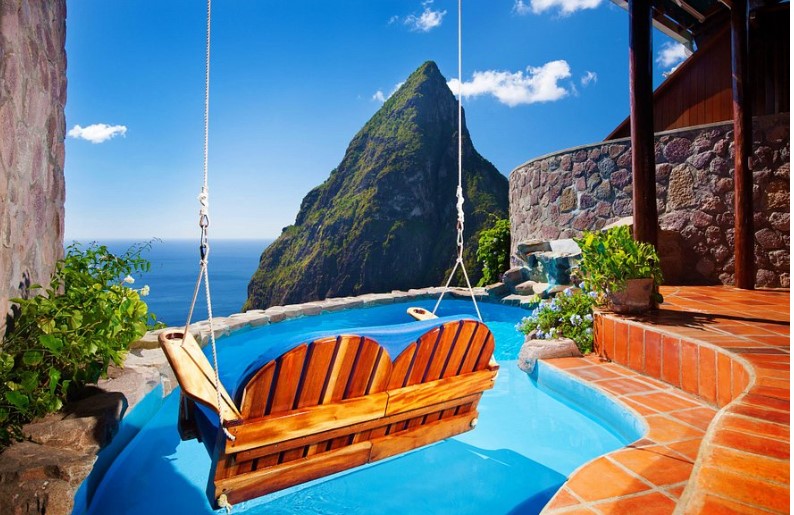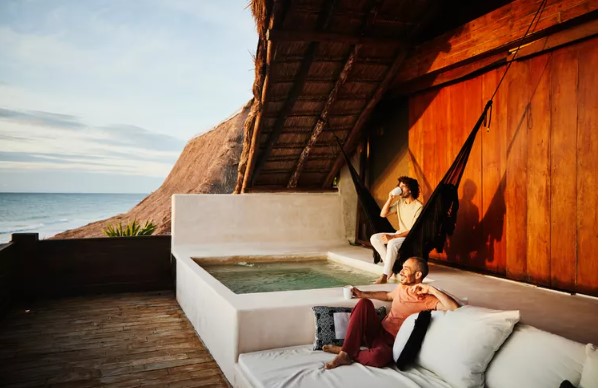Beauty of Swat valley
Swat, a beautiful region in Pakistan’s Khyber Pakhtunkhwa province, is renowned for its stunning natural landscapes. With its majestic mountains, lush valleys, and pristine rivers, Swat has become a popular destination for travelers seeking a peaceful retreat in harmony with nature. In recent years, the concept of sustainable tourism has gained prominence, and Swat has embraced the idea of eco-friendly retreats. These eco-conscious establishments strive to minimize their impact on the environment while offering guests a unique and immersive experience. Let’s explore the sustainable practices adopted by these eco-friendly retreats in Swat.
One of the key focuses of eco-friendly retreats in Swat is the utilization of renewable energy sources. By harnessing the abundant sunlight, solar panels are installed to generate clean energy. This sustainable energy is used to power various aspects of the retreats, including lighting, heating, and hot water systems. By reducing reliance on fossil fuels, these retreats significantly minimize their carbon footprint and contribute to the preservation of Swat’s natural resources
.

Steps taken for conservation of Swat environment
Water conservation is also a crucial aspect of eco-friendly retreats in Swat. These establishments implement measures to reduce water consumption and promote responsible usage. Low-flow fixtures, such as showerheads and faucets, are installed to minimize water wastage without compromising guest comfort. Rainwater harvesting systems are often utilized to collect and store rainwater for landscaping purposes, reducing the need for freshwater sources.
Efficient waste management practices are another priority for eco-friendly retreats in Swat. These retreats establish comprehensive recycling programs to ensure that waste materials, such as paper, plastic, glass, and metal, are properly sorted and recycled. Biodegradable waste, such as food scraps and organic matter, is often composted to create nutrient-rich soil for gardens and landscaping. By diverting waste from landfills, these retreats contribute to the preservation of Swat’s natural beauty.
Sustainable food practices are also emphasized in eco-friendly retreats. These establishments prioritize the use of locally sourced and organic food options. By partnering with local farmers and suppliers, they reduce the carbon footprint associated with long-distance transportation. Some retreats even maintain their organic gardens, growing fresh herbs, fruits, and vegetables. By supporting local agriculture and promoting chemical-free food, these retreats provide guests with healthy and sustainable dining experiences.

Preserving the natural surroundings is a core principle for eco-friendly retreats in Swat. These establishments implement responsible land management practices, limiting construction within ecologically sensitive areas and preserving native vegetation. They also take measures to minimize soil erosion through erosion control techniques. Many retreats actively engage in reforestation initiatives, planting trees to restore and enhance the natural habitat of Swat.
Swat Education
Educating guests about environmental conservation is another important aspect of eco-friendly retreats in Swat. Through guided nature walks, informative signage, and workshops, these retreats raise awareness about Swat’s fragile ecosystems and the significance of sustainable practices. By inspiring guests to adopt eco-friendly habits, these retreats contribute to a wider movement of environmental stewardship.
Supporting local communities is a fundamental value for eco-friendly retreats in Swat. They prioritize hiring local staff, providing employment opportunities, and contributing to the local economy. These retreats also encourage guests to engage in community-based initiatives, fostering cultural exchanges and supporting local artisans. By fostering positive relationships with local communities, these retreats contribute to sustainable development and the preservation of Swat’s cultural heritage.
Collaboration with environmental organizations and government agencies is another hallmark of eco-friendly retreats in Swat. These retreats actively participate in nature conservation initiatives, such as biodiversity monitoring, habitat restoration, and wildlife conservation efforts. Some retreats even offer volunteering opportunities for guests to contribute to Swat’s conservation efforts, fostering a sense of connection and responsibility towards the region’s unique flora and fauna.
The architecture and design of eco-friendly retreats in Swat hotels reflect sustainable principles. They employ energy-efficient building techniques, such as passive cooling and natural lighting, to reduce energy consumption. Locally sourced and environmentally friendly building materials are utilized, minimizing the environmental impact of construction. These retreats also ensure that their buildings harmonize with the natural landscape, minimizing disruption to the surroundings.
Swat Nature and Photographer’s Experience
Eco-friendly retreats in Swat offer a range of nature-based activities and experiences for guests to connect with the natural environment. From guided hikes and birdwatching to nature photography and cultural interactions, these retreats provide opportunities for guests to immerse themselves in Swat’s natural beauty. By fostering appreciation for the region’s ecological significance, these experiences inspire guests to become advocates for environmental conservation.
eco-friendly retreats in Swat demonstrate a commitment to sustainable tourism practices. Through the use of renewable energy sources, water conservation, waste management, locally sourced food, and the preservation of natural surroundings, these retreats minimize their environmental impact while offering guests an enriching and responsible travel experience. By promoting environmental awareness, supporting local communities, engaging in nature conservation initiatives, and providing nature-based activities, these retreats contribute to the long-term preservation of Swat’s natural beauty and cultural heritage